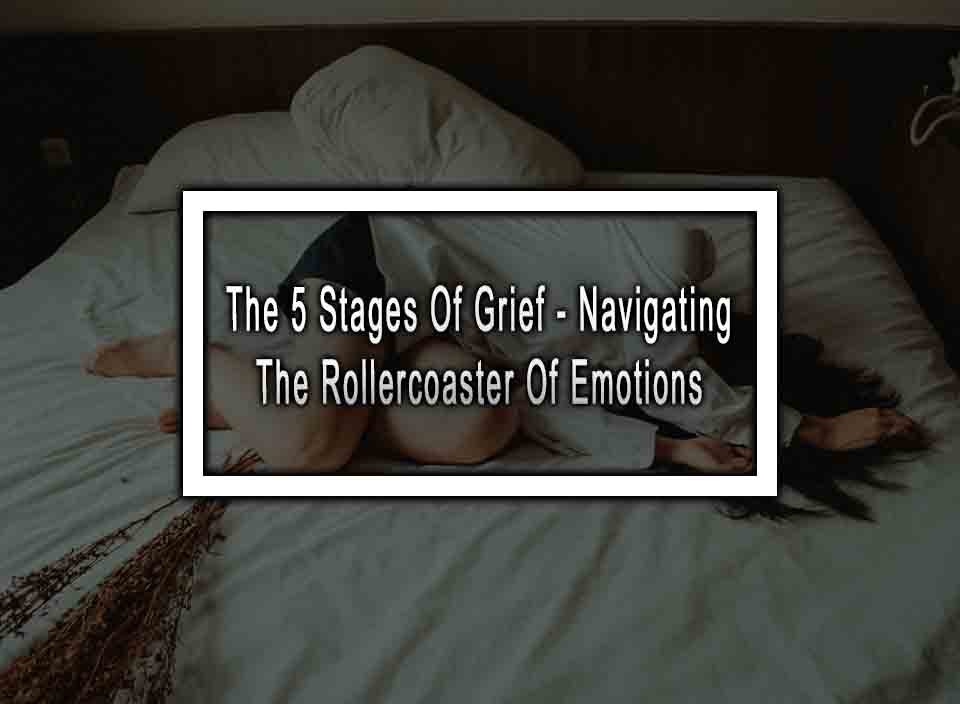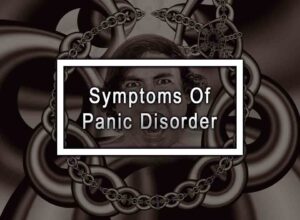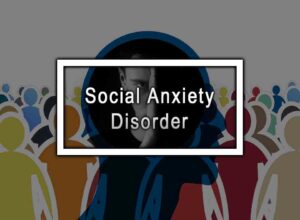Table of Contents
ToggleThe Stages Of Grief: Understanding the Journey of Healing
Losing someone or something significant in our lives can be an incredibly challenging experience. As we cope with the pain, it’s common to go through a series of emotional stages known as the “Stages of Grief.” Understanding these stages can provide insight into our own healing process and help us navigate the rollercoaster of emotions that accompany grief. Join us as we explore the five stages and shed light on this universal journey of healing.
1. Denial: Coping with Shock and Disbelief
During the initial stage of grief, many individuals find themselves in a state of denial. This protective mechanism shields us from the overwhelming pain by causing us to temporarily reject or question the reality of our loss. We delve into this stage and highlight its impact on our emotional well-being.
2. Anger: Channeling Our Emotions
Anger is a natural response to loss, often arising as we grapple with feelings of injustice or powerlessness. This stage allows us to release pent-up emotions, providing an outlet for our pain. Learn how to channel anger constructively and understand its role in the healing process.
3. Bargaining: Seeking Paths to Acceptance
When faced with loss, we may enter a stage of bargaining. This involves attempting to negotiate or make deals with a higher power, in a desperate quest for a return to normalcy. Discover how bargaining serves as a coping mechanism and how it impacts our ability to accept the reality of our loss.
4. Depression: Navigating the Depths of Sadness
Depression often casts its shadow during the grieving process, covering us in a blanket of sadness and hopelessness. While challenging, this stage is crucial for our healing journey. Explore strategies for managing depression during grief and how to seek support when needed.
5. Acceptance: Finding Peace in Moving Forward
In the final stage of grief, acceptance, we begin to find peace within ourselves. It doesn’t mean we forget or stop missing our loss; rather, we learn to live with it in a way that allows us to move forward. Discover the power of acceptance and how it paves the way for personal growth and resilience.
Conclusion
Grief is an intricate journey that no one can fully prepare us for. As we navigate the five stages of grief – denial, anger, bargaining, depression, and acceptance – it’s vital to remember that healing isn’t a linear process. While some days may feel like a step backward, it’s essential to honor our emotions and embrace the healing path at our own pace. By understanding the stages and seeking support when needed, we can transform our pain into growth, finding solace in the rainbow after the rainstorm of grief.
Stages Of Grief FAQ
Here are the most common questions about stages of grief.
1. Is it necessary to go through all the stages of grief?
Not everyone will experience all the stages of grief, and they may not necessarily occur in a linear order. Grief is a unique and individual process, so individuals may go through some stages more intensely than others or skip certain stages altogether.
2. How long does each stage of grief last?
The duration of each stage can vary greatly from person to person. There is no set timeline for grief, as it is a personal and ongoing experience. Some may progress through the stages quickly, while others may take longer to navigate through them.
3. How can I help someone who is grieving?
It is important to be supportive and empathetic when helping someone who is grieving. Listen to them without judgment, offer a shoulder to lean on, and be available to provide them with comfort and reassurance. Allow them to express their emotions and grief in their own unique way.
4. Are the stages of grief applicable only to the death of a loved one?
No, the stages of grief are not limited to the death of a loved one. While they were initially proposed in the context of dying, they can be applied to various types of loss, such as the end of a relationship, the loss of a job, a significant change in life circumstances, and more.
5. Should I seek professional help if I am experiencing grief?
It is always a good idea to seek professional help if you are struggling with grief. A therapist or counselor can provide support, guidance, and tools to help you navigate through the grieving process. They can also help you develop healthy coping mechanisms and engage in self-care during this difficult time.












